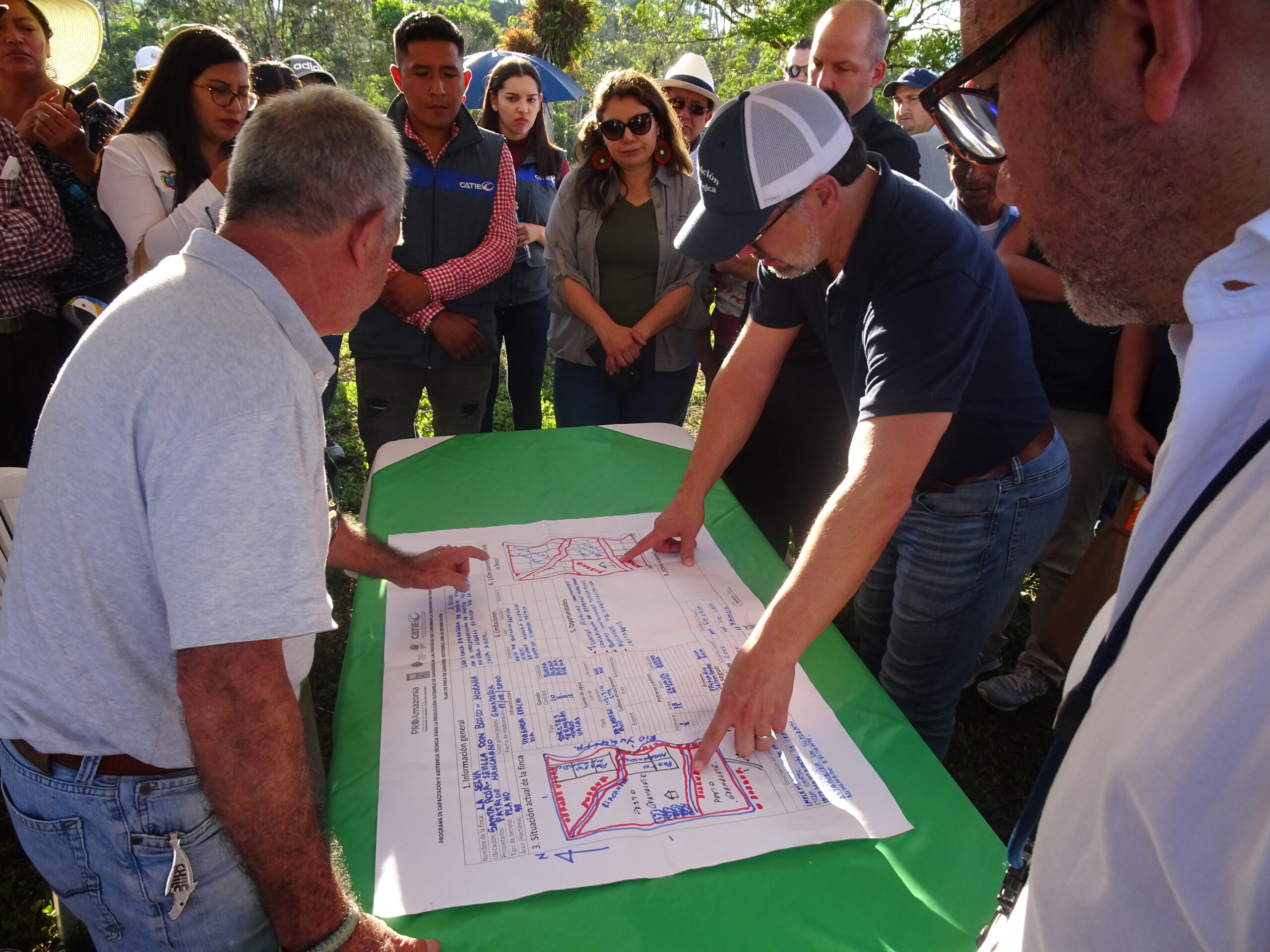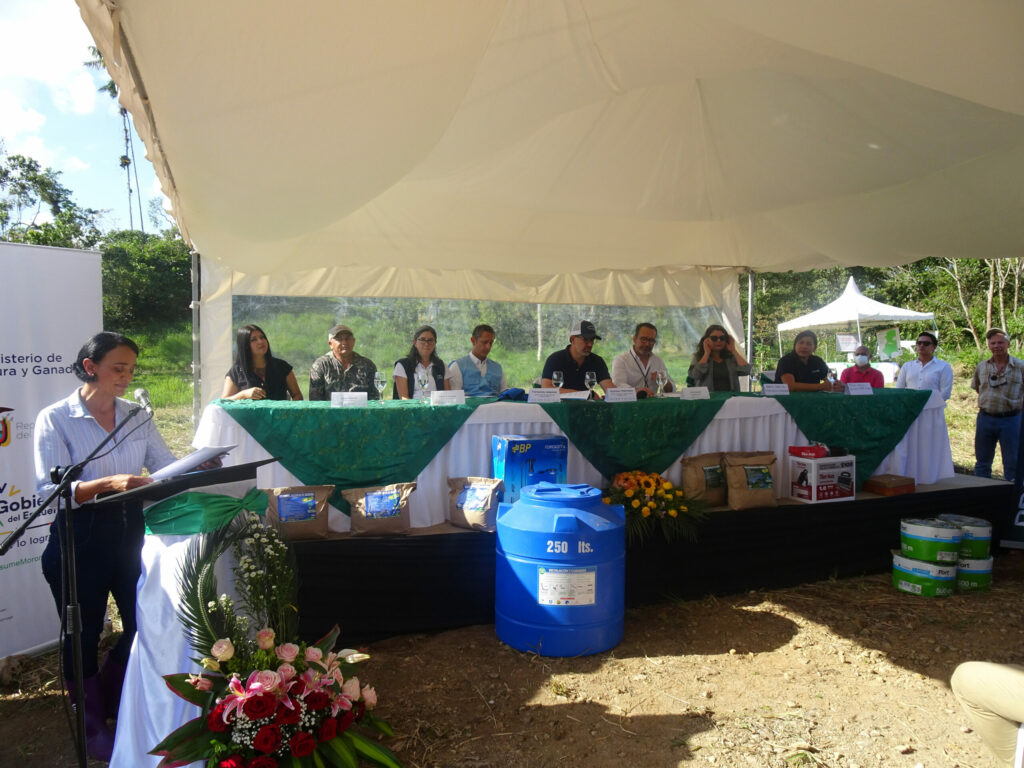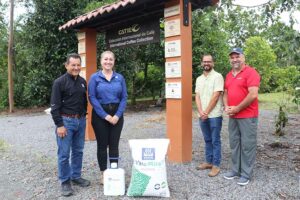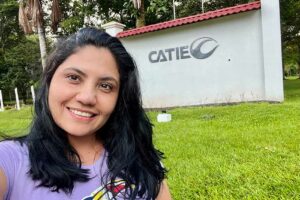Ecuador's Minister of Environment visits cattle ranching field school in Morona Santiago

- These field schools have trained 1,369 producers in two cycles, who are beginning to implement good livestock farming practices on their farms. personas productoras en dos ciclos, quienes comienzan a implementar buenas prácticas ganaderas en sus fincas
September 14, 2022. In Ecuador, in August, the Minister of Environment, Water and Ecological Transition, Gustavo Manrique, visited the Caobales ranch in Huamboya canton, where he met with cattle ranchers involved in the sustainable and deforestation-free cattle ranching field schools in the province of Morona Santiago.
The Field Schools are a National Government initiative implemented through PROAmazonia, with the help of CATIE and the United Nations Program (UNDP).
The event was attended by authorities from UNDP, the Ministry of Agriculture and Livestock, the Ministry of Environment, Water and Ecological Transition (MAATE, its Spanish acrony), PROAmazon and CATIE.
In his speech, Minister Manrique pointed out that eight out of 10 people prefer sustainable products, which shows that more and more people are becoming environmentally responsible. "I congratulate all Amazonian livestock farmers who every day implement good sustainable production practices," Manrique commented.
The Minister then toured different stations prepared by the technical team of CATIE and PROAmazon, where the farmers themselves explained to the authorities what they had learned in the field schools on topics such as farm planning, fodder banks, ecosystem services, rotational grazing and productive and reproductive records.
"These field schools gave us another vision, of not being simple cattlemen, but seeing ourselves as entrepreneurs and motivating us to fight for our financial independence," said María Abrigo, a cattle rancher from the Pablo Sexto canton.
In Morona Santiago, a total of 64 field schools have been implemented in two cycles, benefiting a total of 1,369 producers with an area of 16,626 hectares in transition from traditional livestock farming to sustainable livestock farming free of deforestation.
Before the end of the Minister's visit, a symbolic delivery of non-monetary incentives, such as pasture seed, silo tanks, electric fences and barbed wire, was carried out by ProAmazonia, with 459 people having benefited from these incentives.
In addition, we continue training producers in five additional modules, dealing with the topics of pasture establishment, strategic feeding in critical periods and nutritional blocks, animal health, manure management and financial education.

More information:
Santiago Garzón Proaño
School Field Coordinator, Ecuador Coordinador
Livestock and Environmental Management Unit
CATIE
Written by::
Karla Salazar Leiva
Communicator
Information Technology and Communication
CATIE



